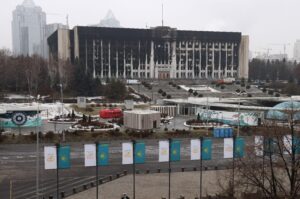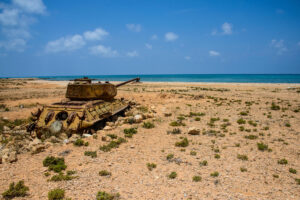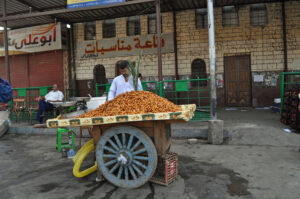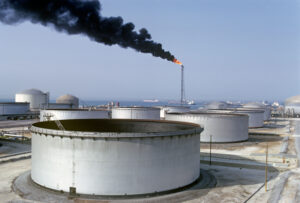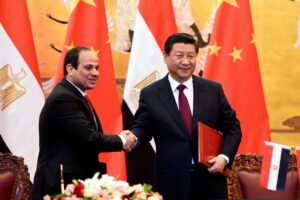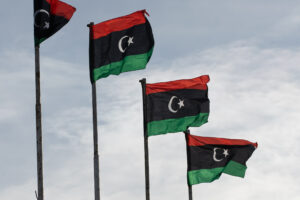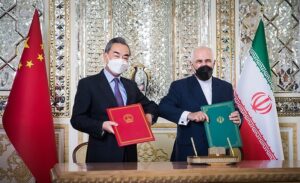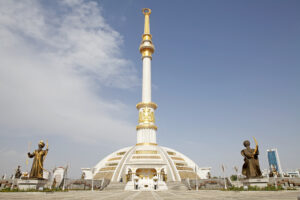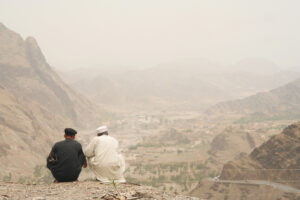Category: Economics
-
The abrupt and turbulent start of the year in Kazakhstan has engineered the conditions for a dual narrative to emerge. Firstly, the widespread violence and protests, coupled with Kazakhstan government’s botched handling of containing the violence demonstrated the fragility of the security conditions in Kazakhstan. This was made even more shocking by the apparent mistrust […]Conor McLaughlin/May 22, 2024
-
Arabian Peninsula, Economics, International Relations, Saudi Arabia, Security, Trade, United Arab Emirates, YemenThe UAE’s strategic consolidation of the island of Socotra will not enhance the prospects for a peaceful resolution of the conflict in Yemen. Whilst it may further complicate the process, it will not necessarily stymie efforts either. However, what is likely to stymie prospects is the growing rift between Saudi Arabia and the UAE and […]Neil Quilliam and Alice Gower/May 22, 2024
-
COVID-19 has exacerbated the challenges of female labour participation in Jordan. Female social involvement has significantly decreased by virtue of caring for their children and other familial responsibilities – especially since kindergartens were one of the first common areas to be closed during quarantine. Recent research has concluded that there is a noticeable low rate […]Akram Al Deek/May 22, 2024
-
For many Egyptians and policymakers alike, Egypt’s informal sector represents both a blessing and a curse. Through ease of entry, it provides employment for those shut out of the formal sector, but it is also characterised by poor working conditions and weak worker protections. The Egyptian government has shown great ambivalence towards the sector, sometimes trying […]Alia El Mahdi/May 22, 2024
-
Climate pressure is tilting the global oil business in favour of the giant state-owned oil companies in the Persian Gulf. As oil demand plateaus and starts to decline, these firms have market advantages that will allow them to dominate shareholder-owned oil companies which face a tougher regulatory and price environment. This dichotomy is emerging as […]Jim Krane/May 22, 2024
-
On 30 June, a Chinese State Construction and Engineering Company (CSCEC) work crew lifted into place a steel skyway connecting two office buildings in the Central Business District (CBD) of Egypt’s New Administrative Capital – an engineering feat that serves as a fitting metaphor for the two countries’ rapidly developing commercial relationship. In a 27 […]John Calabrese/May 22, 2024
-
The current strategic and political situation in Libya seems almost unrecognizable from the perspective of just a year ago. For the first time in nearly a decade, Libya appears to have a widely supported transitional administration under recently appointed Prime Minister Abdul Hamid Dbeibah. There are also ongoing talks to unify the command structures of […]Jacob Mundy, Colgate University/May 22, 2024
-
China’s relationship to the Gulf could be changing. Previously, it avoided conflict and risk, which helped it establish good diplomatic relations and expand its commercial ties in the region. That approach may become harder given the high importance of Saudi Arabia and Iran to Chinese investments and the two countries’ own rivalry and competitive struggles […]Guy Burton, Lancaster University/May 22, 2024
-
Turkmenistan has been facing an increasing crisis of food, primary products, and cash shortages. The crisis is a result of lower natural gas prices, Turkmenistan’s primary export, and a Chinese monopoly over gas exports. Although the regime often trumpets its economic successes, the crisis has accelerated, and imports of food and consumer goods were cut […]Slavomír Horák, Charles University in Prague/May 22, 2024
-
Launched in June 2017, the so-called ‘blockade’ of Qatar by the ‘Anti-Terror Quartet’—comprising Saudi Arabia, the United Arab Emirates, Bahrain, and Egypt—appeared to finally come to an end on 5 January 2021. Ostensibly agreeing at the 41st annual summit of the Gulf Cooperation Council to forgo their thirteen original demands—which were mostly aimed at curtailing […]Christopher Davidson, European Centre for International Affairs/May 22, 2024
-
After nearly two decades, the current manifestation of conflict in Afghanistan may be coming to an end. The United States and representatives of the Taliban signed an agreement in February 2020 that ostensibly sets the terms for the US military departure from Afghanistan. In principle, it also creates conditions for the reconciliation negotiations between the […]Roger Kangas, Near East South Asia Center for Strategic Studies USA/May 22, 2024
-
In a small multi-sectarian country, such as Lebanon, highlighting religious and sectarian factors appear to be the most appealing and logical explanation to political and eocnomic woes. In reality, Lebanese sectarian diversity paved the way to a ruling class that took advantage of the national economic structure to pursue its own interests, leading to the […]Laura Sayah, Arab Center for Research and Policy Studies/May 22, 2024

